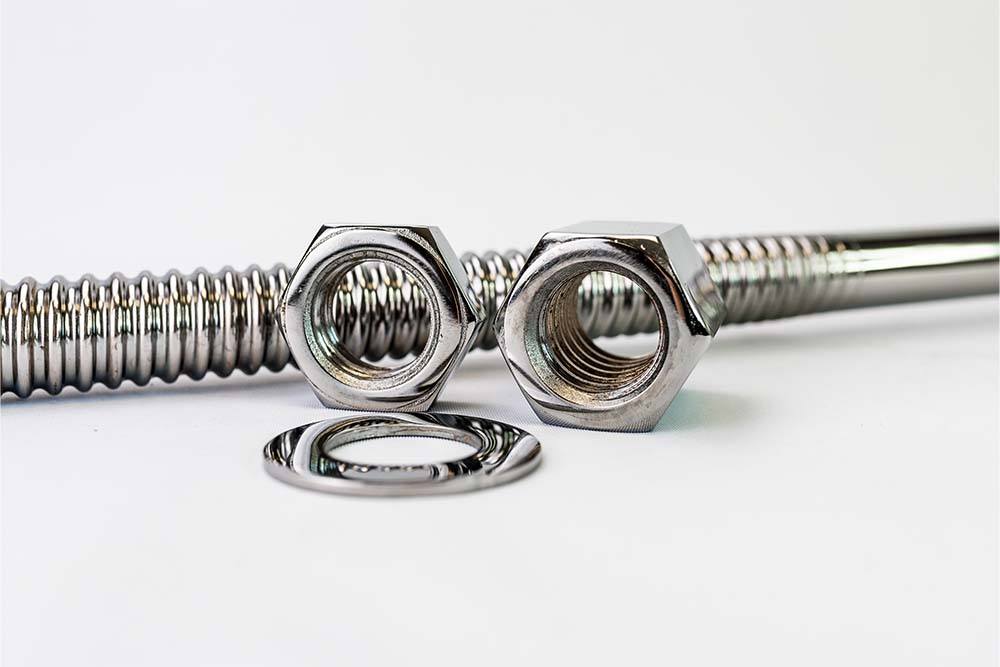Having access to the best structural bolts and specialty fasteners is essential for building, improving, and maintaining America’s infrastructure system.
As an engineer, you already know the importance of having access to the best tools and materials in the industry. Still, it’s equally important to know the details about meeting industry standards and requirements.
One of the most critical aspects of structural engineering involves ASTM F3125, the standard specification for high-strength structural bolts. The standard material specification covers the following aspects:
- Manufacturing of structural bolts
- Strength levels
- Minimum tensile strength
- Other elements of bolt manufacturing
Knowing more about the ASTM standard is crucial to being an informed structural engineer.
What is ASTM F3125?
The requirements for A325 bolts goes back to 2015 when the ASTM (American Society for Testing and Materials) consolidated the existing requirements for structural bolts into F3125.
Consolidating previous guidelines into the F3125 standard helped simplify the requirements for bolts manufactured that previously fell under the headings of A325M, A325, A490M, A490, F2280, and F1852.
With that in mind, the new F3125 standard implementation includes both “twist off” tension control structural bolting assemblies (including the washer and the nut) and heavy hex structural bolts.
In addition to the consolidation process, some changes were made to certain technical aspects of bolts and other fasteners.
For instance, minimum tensile strength ratings are now separated into 120 ksi and 150 ksi strength classes. Additionally, tension control bolts now have a maximum diameter of 1-1/4”, slightly increasing from the previous maximum diameter of 1-1/8”.
How Are Heavy Hex Bolts Impacted?
Heavy hex bolts are one of the most significant manufacturing areas impacted by the new industry standard.
Heavy hex bolts are the industry standard for most structural bolting applications, especially with government infrastructure. The bridges, tunnels, and other vital public transportation areas that keep this nation running rely on quality bolts, most of which fall under the heavy hex category.
These bolts, which first go through a strenuous process of weathering steel, come with a shorter thread length and a longer shank length than some other types of bolts.
Heavy hex bolts are made from standard alloy steel and are hot-dipped galvanized during manufacturing. Their shorter thread lengths and longer shank lengths allow them to provide more precise connections than other bolts used in infrastructure applications.
How Were Tension Control Bolts Affected?
Tension control bolts, also referred to as TC bolts, were also impacted by the ASTM consolidation process regarding F3125.
These bolts are preassembled fasteners that come with a rounded head and a splined end. This end shears off once the nut has been torqued correctly and the manufacturer’s desired torque has been accomplished.
Before we dive into some of the other benefits of TC bolts, it’s important to note the benefit of the splined end shearing off once the bolt has been correctly torqued into place. Shearing off this end helps prevent the risk of any future slippage between the bolt and the planed surface, helping prevent a host of problems ranging from corrosion to unsecure connections.
Additionally, TC bolts are much simpler to install than many other types of fasteners, which makes them a popular choice on large construction projects. The more straightforward installation process cuts down on the labor hours required to complete a job, which is crucial when dealing with government contracts when every dollar must be accounted for.
Also, since TC bolts are easier to install, they can be handled by a single employee, which means you can have multiple people working in different areas of the project.
Additional Resources for Engineers
At Dyson, we understand the importance of providing engineers, especially those working to keep America’s infrastructure up and running, with the high-quality tools and materials they need.
We aim to keep engineers up-to-date on the latest industry requirements using fasteners and other forged products for critical jobs. We want to provide you with the information you need to safely, efficiently, and correctly complete projects.
The world of infrastructure construction is constantly changing and evolving, as seen with the recent changes to the ASTM F3125 standard. You need a trusted source of information to keep you up to date.
Subscribe to the Dyson eNews today to receive the information you need to get your job done the right way. We’ve been holding America together since 1884, and a large part of that commitment involves keeping our customers informed.
We invite you to email [email protected] to be added to our email list.
